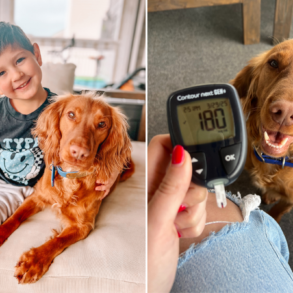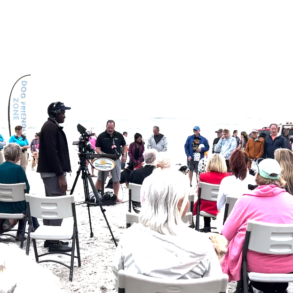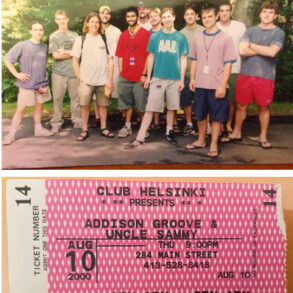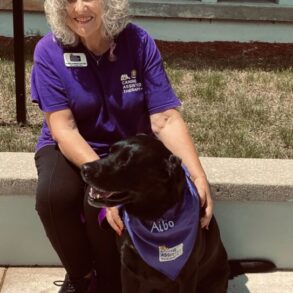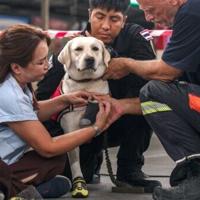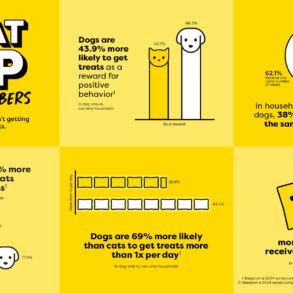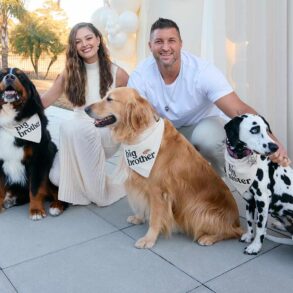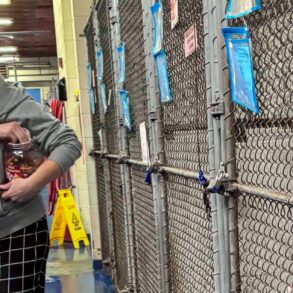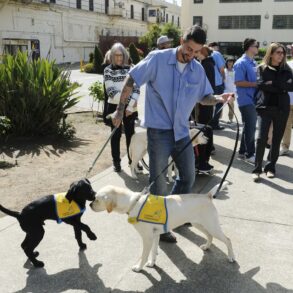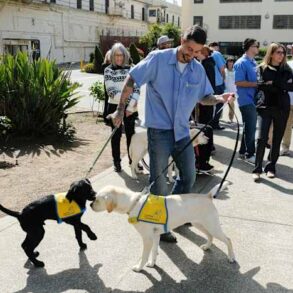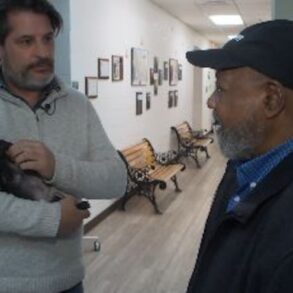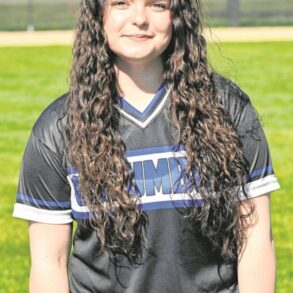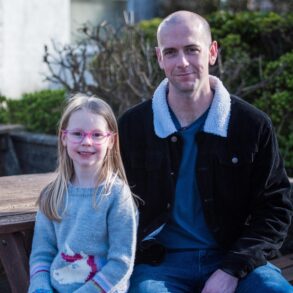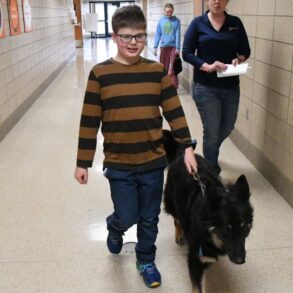For many people, dogs are more than furry friends or beloved family members; they are assisted living tools trained to alleviate the challenges of living with a disability. Since canines’ role in improving the well-being of individuals became evident, many organizations entered the market, offering professional training services tailored to specific needs. While the landscape is abundant in expert trainers, societal awareness is still lacking, calling for comprehensive solutions that truly empower people with disabilities.
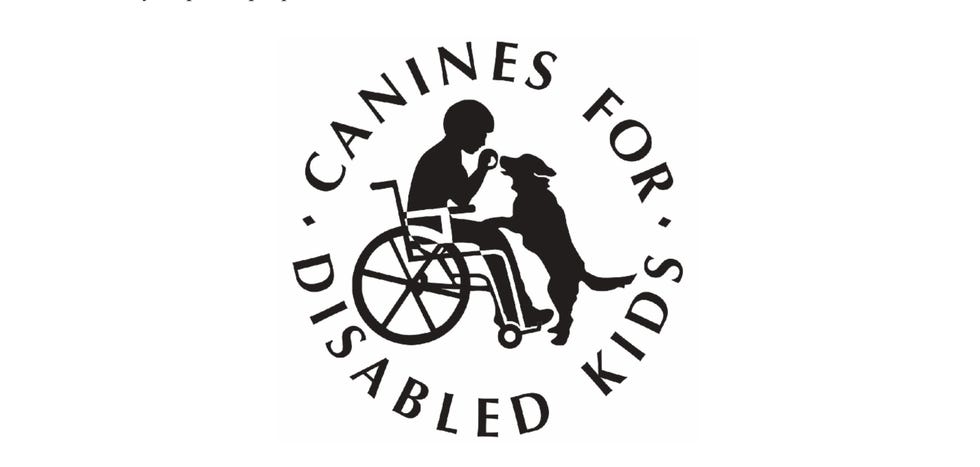
In 1998, Canines for Disabled Kids (CDK) was established with a sole mission: to promote the independence of children with disabilities, helping them regain a sense of control and self-sufficiency. For more than 26 years, this non-profit has traveled across the US and Canada, meeting with families, schools, communities, religious associations, and corporations to raise awareness and illuminate the importance of adequate service dog regulations.
Through hands-on engagement, CDK redefines how disability is understood, enriching its common perception – a severe impairment that makes day-to-day living nearly impossible – to a more broad, accurate one: a part of the body that doesn’t work as it should, including common disabilities like the need for eyeglasses. Raising awareness is crucial to fueling the acceptance of service canines in public places, wherever they may be. “We have to think of service dogs the same way we think of eyeglasses or walking canes,” adds Kristin Hartness, Executive Director. “No one will ask you to take off your glasses when you enter a restaurant or a movie theater. They are a part of an individual with a disability, just like service dogs.”
To make this vision a reality, CDK tackles the issue at its root, educating public institutions and authorities on how to identify service dogs from emotional support canines. “It doesn’t surprise me that people are skeptical – there’s a lot of overwhelming fine print when it comes to the criteria that make a dog a service canine, and it’s difficult to tell them apart,” Kristin says. “That’s why CDK helps people understand these differences.”
Knowing that education is at the heart of any positive change, CDK offers insightful presentations, conferences, and one-on-one consulting entirely free of charge. Through this, the non-profit demystifies common myths, ranging from children being too young to work with a service dog, misunderstanding requirements, or believing it’s more affordable to train a family dog rather than working with a certified training program.
“Some people receive a rejection letter and think they aren’t eligible. Truth is, most of the time, they had simply applied for the wrong program. Others still think that service dogs are the same as therapy dogs, treating them like pets. That leads to yet another issue – people worrying service canines will act inappropriately or behave uncontrollably,” Kristin shares. “A service dog has trained skills and appropriate behavior related directly to its owner’s disability. With adequate training, it’s in control of its actions.”
Having traveled to hundreds of cities across the US and Canada, Kristin witnessed the transformation of regulatory frameworks firsthand. With detailed consulting services and discerning educational initiatives, CDK narrows down the broad rules implemented by ADA, leaving a two-fold impact—helping communities understand service dogs and helping regulatory bodies refine their guidelines. “Because the law started off broad, it allowed for growth, development, and improvement over time,” adds Kristin. “The more research is conducted, and the more disability stories are told, the easier it is to reevaluate rules and make the necessary adjustments.”
In the educational sphere, CDK provides all-encompassing presentations for school staff, parents, students, businesses, and more, all tailored to individual needs. When working in schools, the non-profit delves into the regulations for children who can work with a service dog independently – averaging 14 or older – and those needing a 3rd-party facilitator. Kristin talks with peers, peers’ parents, and every staff member, explaining how the dog is trained, how to behave around it, and soothing any worries regarding potential aggressive actions.
For CDK, a sense of comfort around a dog is a dual responsibility, also falling on the disabled individual. “We want everyone to feel safe. While peers are taught not to touch or engage with the canine without permission, the owner is taught how to leverage this living and breathing assisted tool in an ethical way,” stresses Kristin. “We ensure that the children we help gain all the benefits of a service dog without using it to gain leverage over others.”
As part of its community-centric blueprint, CDK organizes entertaining, unique events where disabled individuals, their families, and anyone wishing to contribute to the non-profit’s mission can participate. Every June, the organization invites foodies and beer enthusiasts to its Incredible Pairings event, where, in a local brewery located in Worcester, participants can indulge in delectable combinations of different beers and desserts. Some of the past delights have featured a refreshing raspberry beer paired with a lemon dessert or a chocolate stout pint with a crumbly peanut butter cookie.
In November, people can take part in the Over the Edge with CDK event, where, for a small registration fee, they can rappel down a 9-story building to support a good cause. Toward the end of the year, with the Christmas spirit of kindness filling the air, the non-profit sends gratitude cards to former donors, showcasing a deep appreciation for all contributions and for every person who helped fuel CDK’s mission over the years.
“We couldn’t have educated so many people over the years without the support of the communities we serve. CDK is a labor of love – an answer to a sacred calling compelling us to do something and fill societal awareness gaps,” reflects Kristin. “The mission is far from over, and we’re excited to witness more service dog-driven transformations in the future.”
This post was originally published on this site be sure to check out more of their content.




